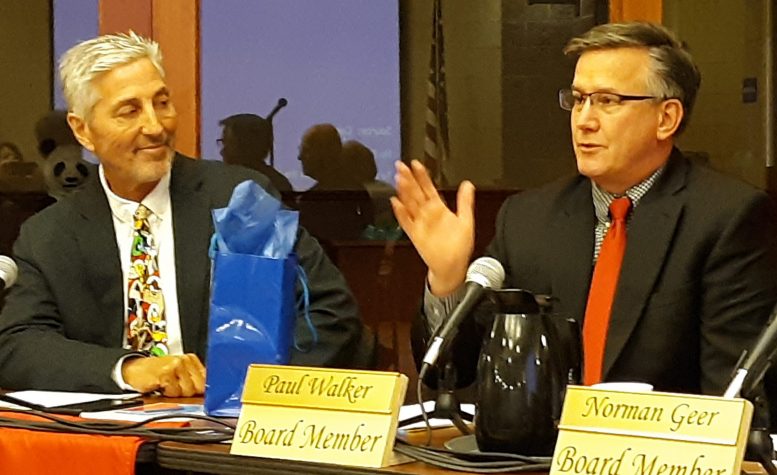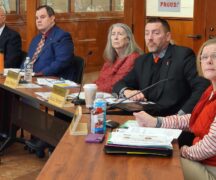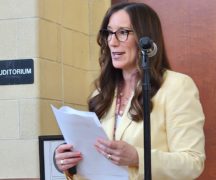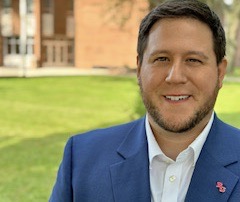By JAN LARSON McLAUGHLIN
BG Independent News
Paul Walker used his last meeting as a school board member Tuesday to take a parting shot at the voucher system that is eating away at public education.
Walker was praised by fellow board member Bill Clifford for his ability to make tough decisions, to consider issues thoroughly, and to always put students first.
So when he criticized the voucher system, he was speaking as someone who knows the struggles of keeping a district financially healthy – and as someone who learned just how hard teachers work in public schools.
“Public education is under attack,” said Walker who has served eight years on the Bowling Green Board of Education and did not run for re-election.
“This is going to cripple our school systems,” he said, suggesting the blame may be shared with Ohio leaders and U.S. Secretary of Education Betsy DeVos.
The voucher system began about 20 years ago to help struggling students. Now, Walker said, the system is using taxpayer money for private education to take the top students from public schools.
Superintendent Francis Scruci asked people at Tuesday’s school board meeting to reach out to their state representatives about problems with school funding and the state report card system.
“There is some traction right now in the legislature,” Scruci said.
That traction can be attributed to the fact that more than 400 schools in Ohio have been put in the EdChoice program, including some wealthier school districts.
“Now, all of the sudden, we have their attention,” Scruci said.
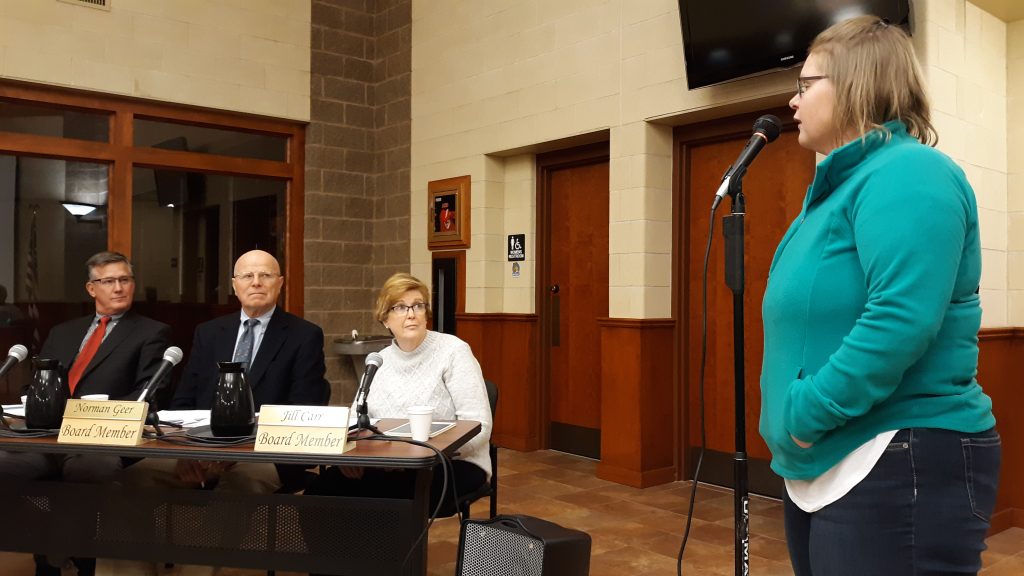
During the public participation portion of Tuesday’s meeting, newly-elected board member Tracy Hovest thanked Walker for his service. “I will continue your legacy of putting kids first,” she said.
Citizen Frances Brent thanked Walker for getting the district through “extremely difficult times.” She shared his concern about school vouchers.
“We are, as a state, starting to fund religious education,” with public money, she said.
Ohio legislators have frozen state budget expenses – except for a 5% increase in vouchers, Brent said.
“It is not accountable for actually helping children,” she said.
Sadly, she said, it took some wealthy school districts getting dinged by the EdChoice program to get state leader’s attention.
“They finally realize the damage it’s doing to our school budgets,” Brent said.
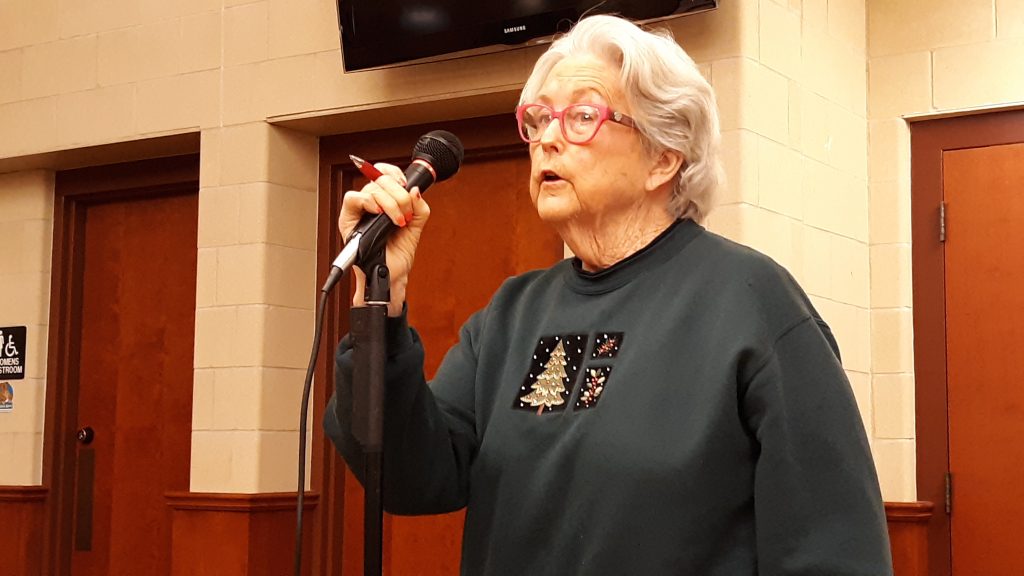
Brent also talked about the district’s need for good news – specifically in March, by passing the renewal levies for operating expenses.
“We need to find some positives and some victories,” she said. “These are enormous benefits that will not cost the voters additional monies.”
Failure to pass the renewals as continuing levies will mean the district will keep having to ask voters for the same money again and again, Brent said. Plus, the district has to keep more money in its reserves, and is unable to spend millions of dollars if the levies are not passed as continuing issues.
School Treasurer Cathy Schuller also stressed the need for the levy renewals in the spring. Some citizens have asked if the district truly needs the operating levies since it will be getting tax revenue from the Rover pipeline.
However, Rover pipeline has appealed its set tax rate – asking to pay 54 percent of its original tax bill to school districts and other entities.
Revenue from the pipeline is “still unreliable” and would be “foolish” for the district to rely on, Schuller said.
So when asked by taxpayers if the district needs its two renewal levies in the spring, Schuller does not hesitate to say, “Yes, we certainly do.”
The pipeline has the right to appeal its tax amount every year, plus the tax value depreciates every year for the next three decades, she said. And school officials have been warned that the state is looking to cut funding to districts that get pipeline tax revenue, Schuller added.
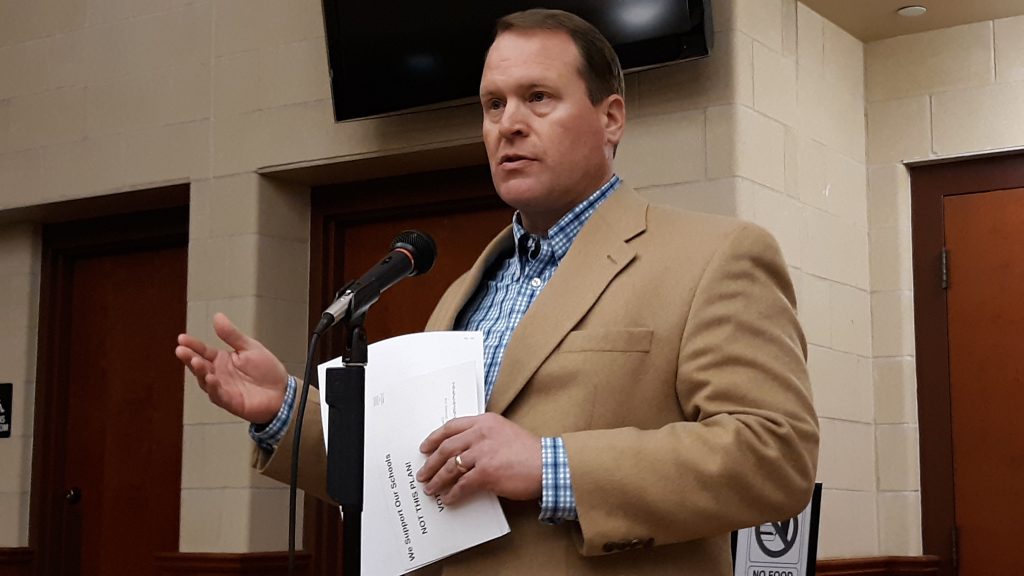
Also speaking at the meeting was Ben Otley, who worked on the last levy campaign. He cleared up the “false premise” made at the last board meeting that the board could have passed its building issue if it had tried for an earned income tax – rather than the combination traditional income tax and property tax.
“The district can’t have traditional and earned income tax at the same time,” so it would have had to wait for the existing traditional income tax to expire in 2022.
The financial tax force didn’t even choose the earned income tax as an option since it puts the greatest burden on working people – by not collecting tax on businesses and farms.
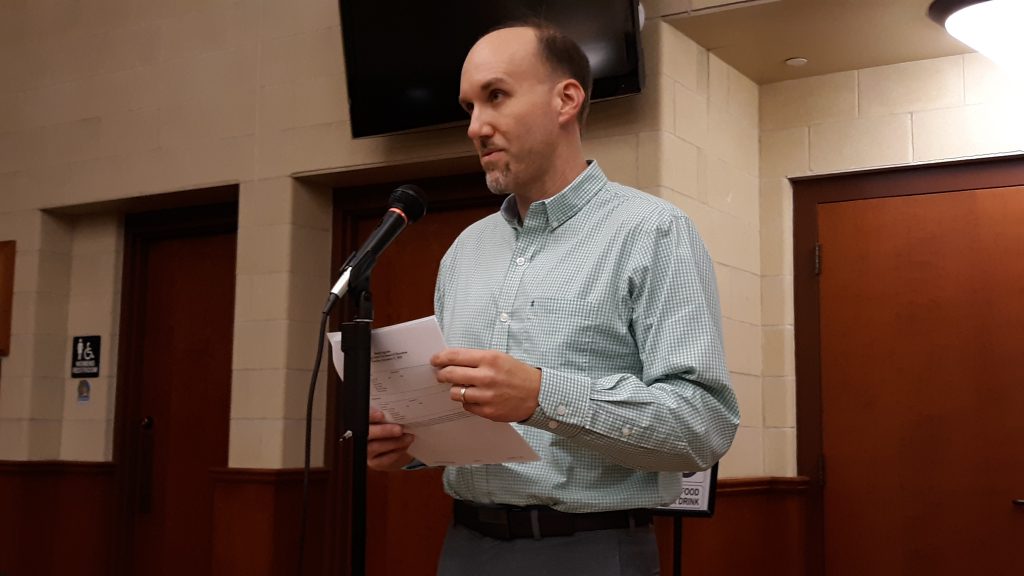
Tim Parish said he objected to statements from the last board meeting that the majority of the residents in the rural areas of the district voted against the school issue – but have no “neighborhood schools.”
“I believe those areas voted their concerns” and wanted smaller elementaries, Parish said.
He was critical of the “persecution” in online forums of those opposed to the single elementary. That helped create a “silent majority” that resulted in “three strikes” against the building proposal, he said.
Parish said he would vote for any funding level that supported three elementary schools.
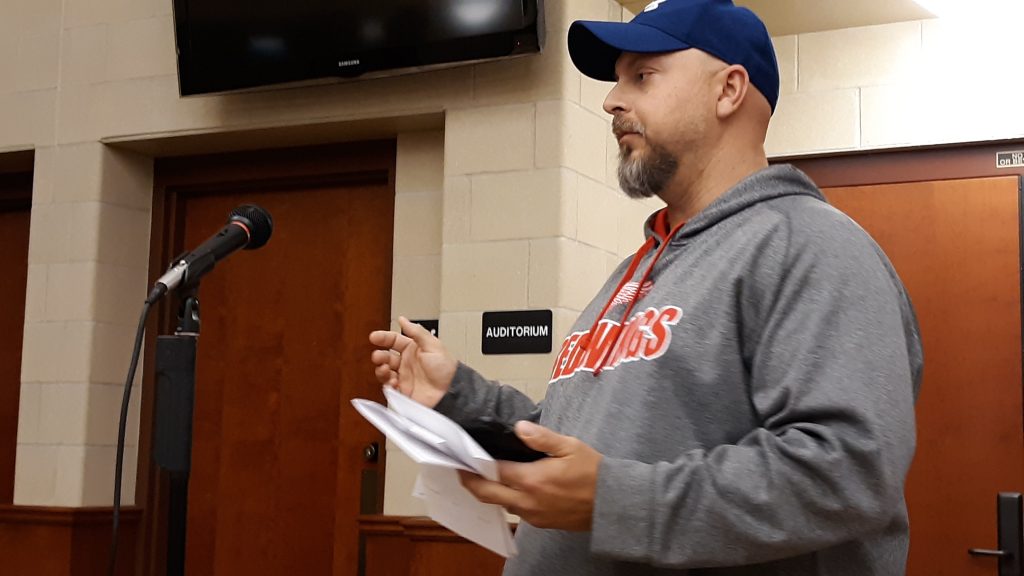
Todd Sayler suggested that the school board consider a different way of generating revenue for the schools until the district reaches a building solution. If the 3,889 people who voted in favor of the levy would put an average of $500 a year toward the district, nearly $2 million could be raised annually.
The school treasurer and financial consultant, David Conley, could make the tax formula for the proposed income and property tax available online for people to calculate their share.

